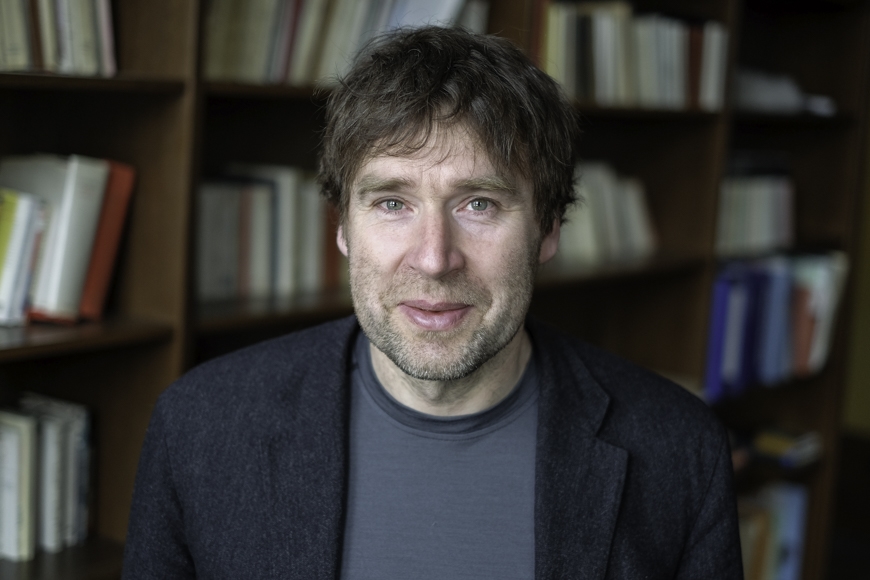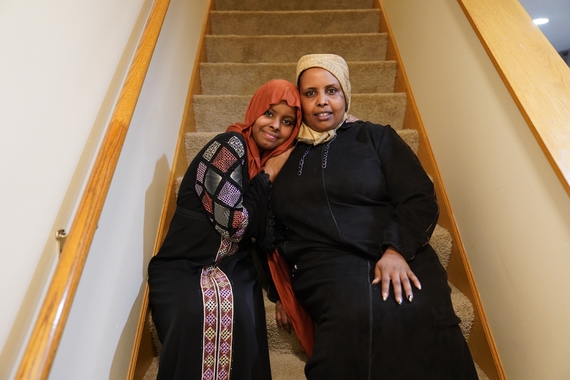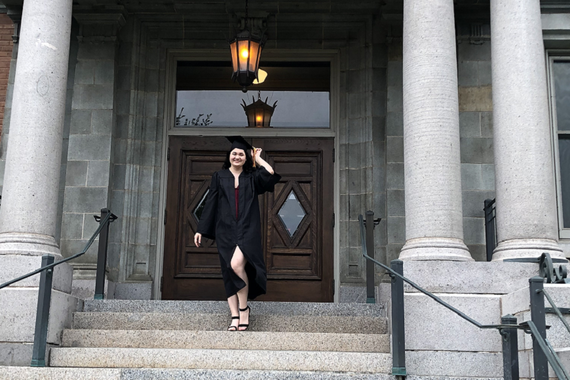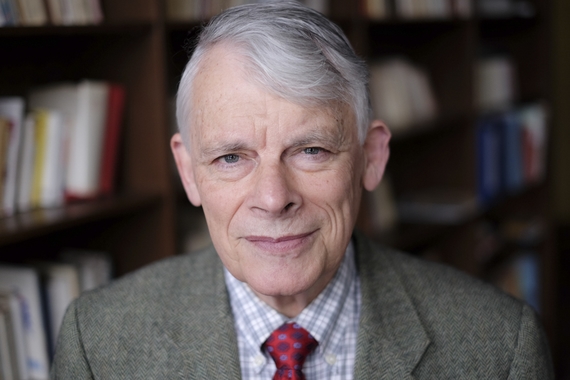German Theater and Politics: Center Stage
Director of Graduate Studies and Professor Matthias Rothe’s teaching philosophy aims to question and break down barriers between the roles of instructor and student. “Learning should be collaborative, and it ultimately should be an exploration of material,” he remarks. “I see teaching not as a situation where I have knowledge and I’m lecturing, but rather as a process of learning for everyone, including myself.”
In spring 2018, Rothe taught a course on social control and surveillance in Germany and the United States. It looked at how individuals are shaped by different forces, such as labor, education, and criminal justice. Although it focused on two specific countries, Rothe makes it clear that questions of social control are relevant to a larger global conversation, to which he sees many courses taught in the German, Scandinavian & Dutch (GSD) department as connected: “I think what we have been able to achieve is a move away from a national focus that instead allows us to look into how specific theories, skills, and practices that have come out of GSD areas contribute to a larger global or transnational setting.”
That’s just one way that Rothe sees the department building connections. “The department is very interdisciplinary,” he says. “We collaborate with many faculty members from history, philosophy, political science, and theater.”
Creating a Public Sphere
Rothe has long been involved in researching—and dabbling in—German theater. His interest in the art form began while directing at a student theater in the former German Democratic Republic. At the University of Minnesota, he regularly collaborates with faculty in the theater program on key projects.
He recently co-organized a semester’s worth of events and stagings with the Department of Theatre Arts & Dance and the School of Music on the collaborations between prominent playwright Bertolt Brecht and composer Kurt Weill. Those involved worked with different community theaters, which each staged 30-minute pieces from Brecht and Weill. Rothe was also a consultant on staging one of Brecht’s most well-known pieces, The Threepenny Opera.
“The theater is one of the few places you can go where you will have the possibility for an immediate conversation with real people around and in front of you, jointly engaged in the reflection of contemporary questions,” says Rothe. “In many ways the theater acts as a public sphere that has a density you can't find in many other places.” He goes on to add that “the liberal arts, much like the theater, create a public sphere that allows us all to pause, step back, and give necessary critiques on society.”
Rothe believes that such critiques make a society mature and successful. As he puts it, “reflecting and developing ideas in the end has a profound impact on how we do things on a practical level.”
Collaborative Research
Rothe is currently working on a book about political theater in the 1920s. There are many components of political theater, but Rothe’s primary focus is on the effects of artistic collaborations. “Theater by nature is collaborative,” he says. “We often have many people in the room in the process of exploring material, but there is some political theater that makes this collectivity programmatic. I look into these moments in theater and into what impact they have on what the actors/directors actually develop.”
In another recent collaboration, Rothe worked with colleagues from London to translate a fragment of Brecht’s work from the 1920s that deals with futures trading. After translating it, they staged scenes from the piece.
In November 2016 Rothe put on a conference in Berlin titled The Politics Of Form with colleagues from Wesleyan University and the Center for Literary and Cultural Research in Berlin. Rothe explains that “the conference looked at the production process of art, what comes out of it, and how different ways of producing art have an impact on the form it takes.”
And his next act? He hopes to work on projects ranging from the study of social control and surveillance to the concepts, history, and practice of emancipation.
This story was written by an undergraduate student account executive in CLAgency. Meet the team.



